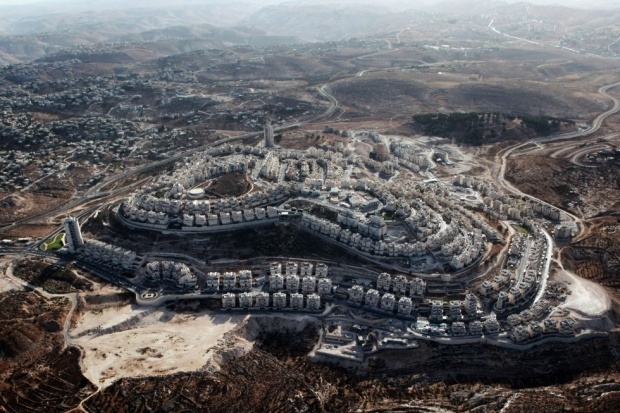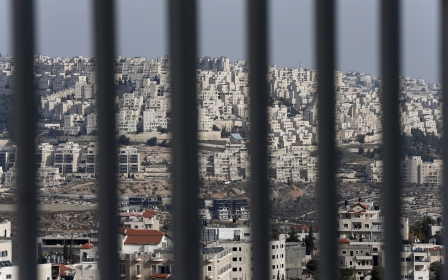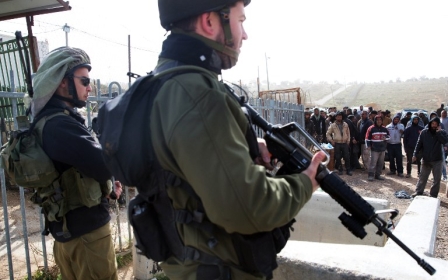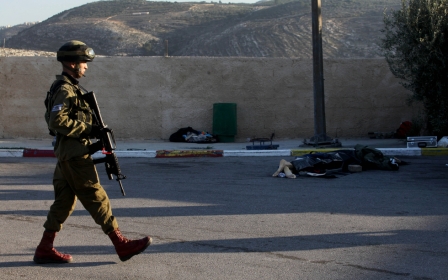Israel approves 153 new settler homes in West Bank: NGO

Israel's defence ministry has approved plans to build 153 new settler homes in the occupied West Bank, a spokeswoman for Israeli settlement watchdog Peace Now said on Monday.
Hagit Ofran said the plans were adopted last week, and involve small settlements in the Ariel area in the northern West Bank, the Carmel settlement in the Hebron area and the Gush Etzion settlement bloc.
On 28 December, Peace Now said that Israel was working to revive and extend plans for new Jewish settler homes in the contentious area of the occupied West Bank known as E1.
In a report it said was based on government data obtained under a Freedom of Information Act request, the group said the housing ministry was seeking to build 55,548 units in the West Bank - including two new settlements - of which more than 8,300 homes would be in E1.
E1 and the adjacent Maale Adumim settlement are east of Jerusalem, and Palestinians say E1 settlements will divide the West Bank and badly hurt the possibility of a contiguous Palestinian state.
"The area of Maale Adumim and E1 is one of the most sensitive areas in terms of the chances for two-state solution," Peace Now wrote.
"For these reasons, whenever an Israeli leader tries to promote the plans in E1, the international community strongly condemns them."
The United States, the United Nations and the European Union oppose all Israeli settlement building but have voiced particular concern about plans for E1.
In 2013, faced with international pressure, Israeli Prime Minister Benjamin Netanyahu vetoed construction of some 1,200 homes there but Peace Now said the housing ministry had hired architects to prepare fresh blueprints.
"This planning, which contradicts any possible commitment to a two-state solution, continues," said last month's Peace Now report, although it also added that the plans could be years from fruition.
"They must be approved by the minister of defence and then go through the approval process of the planning authority," the report said.
US-backed peace talks between the Palestinians and Israel collapsed in April 2014 amid bitter mutual recriminations.
A chief grievance of the Palestinians was settlement building on land they claim for a future state.
"The continued settlement growth raises honest questions about Israel's long-term intentions and will only make separating from the Palestinians much more difficult," US Secretary of State John Kerry said in a speech in Washington on 6 December.
Dan Shapiro, the US ambassador to Israel, echoed Kerry's statement in a speech in Tel Aviv last Monday, saying the US was "concerned and perplexed" by settlement development, "which raise(s) questions about Israeli intentions".
He added that "settlements can never be an excuse for violence – never".
Israel seized the West Bank, including East Jerusalem, in the 1967 Six Day War. It later annexed East Jerusalem in a move never recognised by the international community.
Today, some 580,000 Israeli settlers live in settlements in occupied Palestinian territory.
New MEE newsletter: Jerusalem Dispatch
Sign up to get the latest insights and analysis on Israel-Palestine, alongside Turkey Unpacked and other MEE newsletters
Middle East Eye delivers independent and unrivalled coverage and analysis of the Middle East, North Africa and beyond. To learn more about republishing this content and the associated fees, please fill out this form. More about MEE can be found here.




